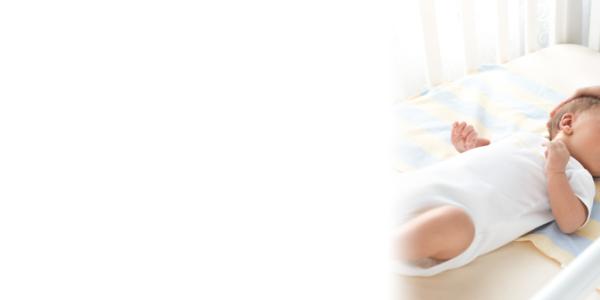
There is more to baby proofing your home than just setting up gates and locks. You can start your baby proofing off by making sure your baby has a safe sleep environment. Newborns sleep an average of 16 hours a day. We want to make sure that your infant’s sleep environment is a safe place since they spend most of their time there. Taking the time to consider these important measures could help ensure the safety of your child as well as the health and happiness of the family.
According to the Centers for Disease Control and Prevention, sudden unexpected infant death (SUID) is a leading cause of death in infants 1 to 12 months of age. Sudden unexpected infant deaths include sudden infant death syndrome (SIDS), accidental suffocation in a sleeping environment, and other deaths from unknown causes. Here are simple guidelines to help keep your baby protected.
Welcome Home Baby
To set the safest scene for your newborn’s homecoming be careful when choosing the type and placement of your baby’s sleeping area.
- The space between crib bars should be no more than 2-3/8 inches, so that the baby cannot get his/her head caught between the slats.
- There should be no more than 2 finger widths of space between the mattress and the side of the crib. This helps prevent risk of suffocation after falling in between.
- Remove all toys and loose blanketing from the crib when the baby is inside to avoid choking and suffocation hazards.
- Remove all toys that are strung across the crib when the infant is 5 months old or can push up onto his hands and knees, as they create a strangulation hazard.
- Do not put the crib or any other furniture near windows. Windows pose many dangers, including climbing and falling hazards. Place cord wind-ups on all window cords to decrease strangulation hazards.
- Avoid putting the baby to sleep in an adult bed. Bed sharing does create a risk of parents accidentally rolling too close or onto their child.
Sweet Dreams
As you may know, the more rest your baby gets, the more rest you get. It is important to take the necessary precautions when getting ready for bed, to secure a good night’s sleep for the whole family. When you put your baby down to sleep:
- Always place normal healthy newborns on their back to sleep. Research shows the risk of SIDS is higher for babies who sleep on their side or stomach.
- The baby should sleep on a firm/flat surface. Soft mattresses are prone to sinking and can create a suffocation hazard.
- Babies do not need pillows, sleep-positioners or wedges, loose blanketing, stuffed animals or bumpers. All of these products are possible suffocation hazards.
- The baby should sleep in a separate bed from his parents. The American Academy of Pediatrics (AAP) recommends a separate but proximate sleeping environment.
- Avoid over- and underdressing infants. Babies should wear only one more layer than you are wearing, and ideal room temperature is between 68 to 72 degrees Fahrenheit.
And Many More
There are steps you can take inside and out of the house to provide the means for your baby to live a full and happy life. Many of these measures will help reduce the risk of SIDS.
- Do not expose babies to secondhand smoke. Secondhand smoke will introduce harmful chemicals that could prove fatal to an infant’s immune system.
- Breastfed babies have a lower incidence of SIDS than formula-fed babies. Breast milk contains many essential nutrients that provide health benefits including improved breathing/swallowing coordination and immune strength to fight infection.
- Consider giving your baby a pacifier. Some studies have shown a strong link between pacifier use and lower risk of SIDS. If you are breastfeeding make sure that the feedings are going well, before introducing a pacifier. It usually takes 3-5 weeks for breast feeding to go smoothly for both mom and baby.
For more information specific to childbirth and parenting, El Camino Health offers a variety of classes to support new and planning parents. To find an upcoming class, search our calendar or call 650-940-7302.

